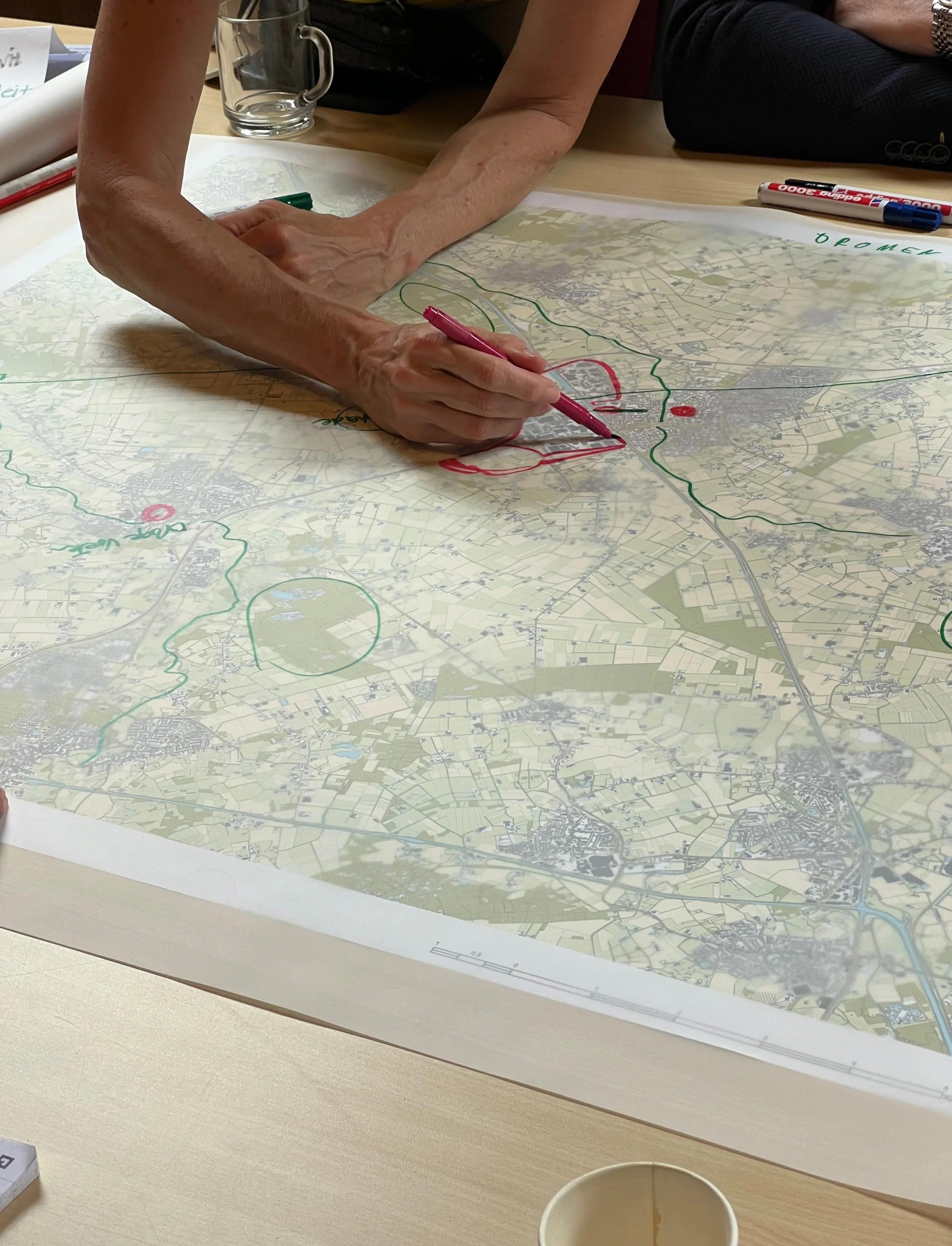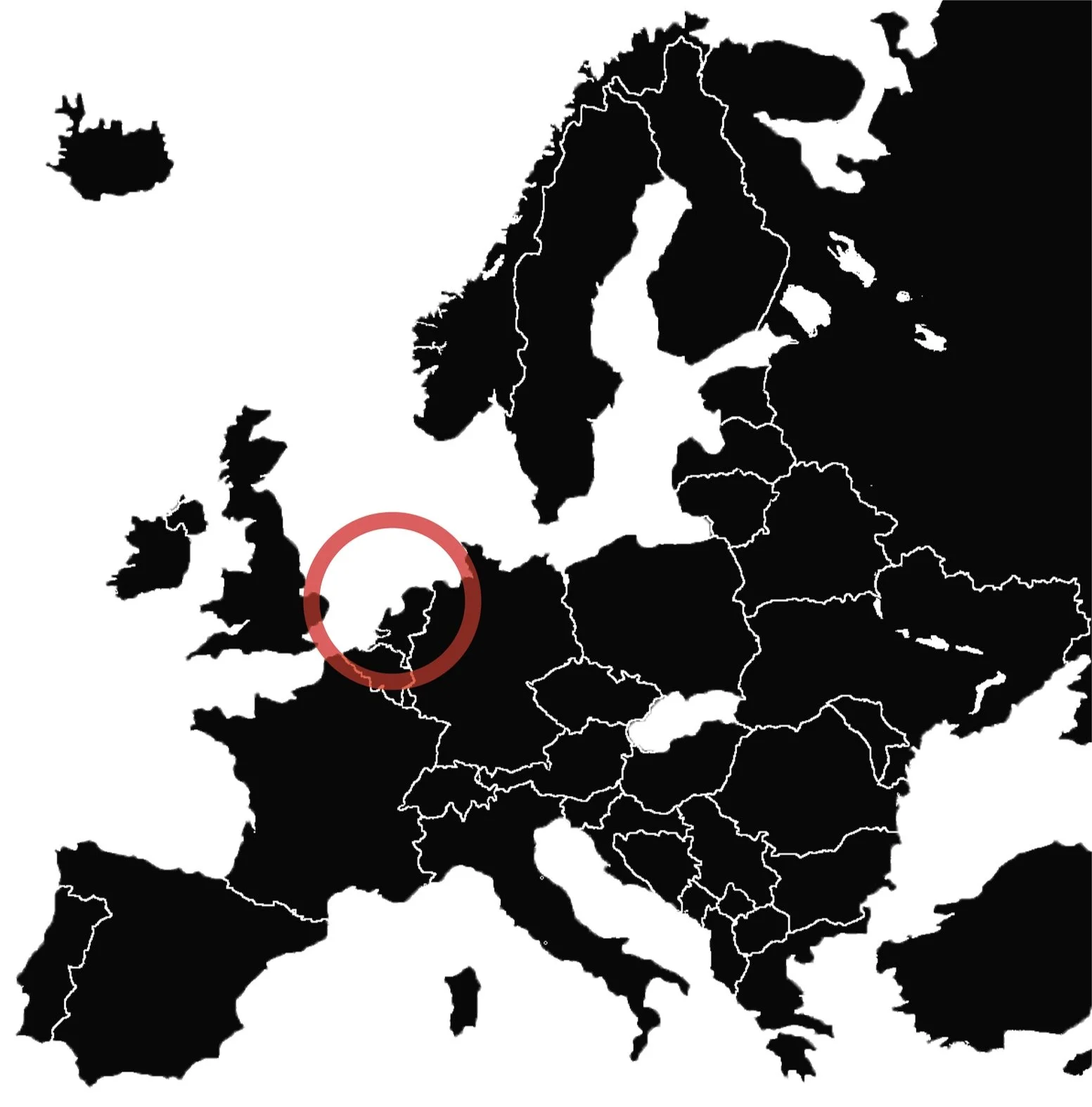Meier kern
Commissioner: Vereniging Kleine Kernen Noord-Brabant (VKKNB)
Team: Luc Hoogmoed, Koen Peters, Abel de Leeuw, Hinke Verbaan, Bob Sastrowiardjo
Scale: Regional
Location: Veghel, The Netherlands
Year: 2022
Briefing: How can liveability in small towns within the municipality of Meierijstad be improved, given the long-term developments in the area? We were tasked with creating four distinct integral visions for the Meierijstad region in the longer term (2050), with a specific focus on liveability in relation to changing lifestyles. To engage citizens and various stakeholders in adopting a sustainable integrated approach, we were asked to develop several longer-term visions. These visions are intended to paint a diverse picture of possible development directions, making citizens realize that we can choose different paths, each with consequences for how liveability is manifested.
LOCATION
The area of interest is located in the province of Brabant, between the cities of ’s-Hertogenbosch and Eindhoven. This region, called the Meierij, is made up of three municipalities: Schijndel, Sint-Oedenrode, and Veghel. In 2017, these municipalities merged to form a unified municipality called Meierijstad. The name Meierijstad has historical roots, as the region was once part of the Duchy of Brabant. A meier (mayor) was assigned for supra-local administration, with the term dating back to the 12th and 13th centuries, when the meier of 's-Hertogenbosch governed the area.
The region benefits from efficient spatial connections to other cities. The A50 highway connects Veghel southward to Eindhoven and northward to Nijmegen, Arnhem, Apeldoorn, and Zwolle. Additionally, the provincial road, N279, links Veghel with ’s-Hertogenbosch and smaller cities within Meierijstad. By water, the Zuid-Willemsvaart canal connects the region to Maastricht in the south and to ’s-Hertogenbosch, providing a shorter shipping route between Belgium and the Brabant/Gelderland sections of the Meuse River.
These efficient connections have fostered an environment which is beneficial to national and international corporations, as well as distribution centers.



AMBITIONS
Guiding principles: Tasked with a focus on business activity, our aspirations, and objectives for the municipality of Meierijstad aim to rejuvenate the existing villages by the year 2050. This entails not only future-proofing the region against climate change but also integrating a lifestyle that is beneficial for both people and nature through strategic spatial planning. In order to achieve these ambitions, we had set a number of fundamental principles.
One key principle is prioritizing accessibility to jobs and facilities without the dependence on cars. Our approach follows the STOP-principle, emphasizing walking and cycling as the primary modes of transportation. This not only reduces emissions but also promotes a healthier lifestyle. Another crucial principle involves the transformation of distribution centres on the 'De Dubbelen' business park into knowledge centres. Given the proximity of Veghel to Eindhoven (less than 30 minutes by bus), we aim to strengthen this connection by utilizing Veghel as an extension of Eindhoven, particularly through knowledge centres and the Tech industry.
Furthermore, we advocate for the establishment of more nature-inclusive farms, providing additional meaning and functions to nature areas. Lastly, our initiative begins with the development of the Tech industry and a knowledge campus.
MASTERPLAN
Guiding principles: Tasked with a focus on business activity, our aspirations, and objectives for the municipality of Meierijstad aim to rejuvenate the existing villages by the year 2050. This entails not only future-proofing the region against climate change but also integrating a lifestyle that is beneficial for both people and nature through strategic spatial planning. In order to achieve these ambitions, we had set a number of fundamental principles.
One key principle is prioritizing accessibility to jobs and facilities without the dependence on cars. Our approach follows the STOP-principle, emphasizing walking and cycling as the primary modes of transportation. This not only reduces emissions but also promotes a healthier lifestyle. Another crucial principle involves the transformation of distribution centres on the 'De Dubbelen' business park into knowledge centres. Given the proximity of Veghel to Eindhoven (less than 30 minutes by bus), we aim to strengthen this connection by utilizing Veghel as an extension of Eindhoven, particularly through knowledge centres and the Tech industry.
Furthermore, we advocate for the establishment of more nature-inclusive farms, providing additional meaning and functions to nature areas. Lastly, our initiative begins with the development of the Tech industry and a knowledge campus.






